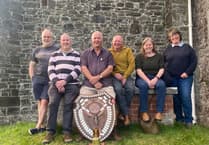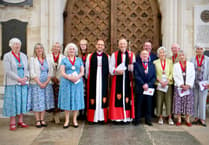SUSTAINABLE Crediton is extremely concerned about the implications for nature contained in part three of the Planning and Infrastructure Bill.
Leading conservation charities, the Royal Society for the Protection of Birds (RSPB) and the Wildlife Trusts, are both highly critical of the bill, amongst many other specialists in the field.
Craig Bennett, Chief Executive of the Wildlife Trusts, says: “The government's Planning and Infrastructure Bill, in its current form, fundamentally undermines its commitment to protect nature.
“The so-called nature recovery part of the bill is a Trojan horse – it's a misnomer because, in reality, it is a licence to destroy.
“It replaces vital nature protections with a weaker substitute, and has been described by the government's own nature watchdog as ‘environmentally regressive’ because it puts irreplaceable habitats and threatened species at risk.”
And Beccy Speight, Chief Executive of the RSPB, says: “Despite engaging in good faith with the UK government for many months, it's now clear that the bill in its current form will rip the heart out of environmental protections and risks sending nature further into freefall.
“The wild spaces, ancient woodlands, babbling brooks and the beautiful melody of the dawn chorus – it's these natural wonders that delight people all over the country and support our physical and mental health that are under threat. That cannot be allowed to stand.
“The evidence clearly shows nature isn't a blocker to growth. The government has identified the wrong obstacle to the problem it's trying to overcome, and that has led it to the wrong solutions.
“With no meaningful amendment in sight, the complete removal of part three of the bill is the only responsible option left."
It seems that not even Tony Juniper, Chair of Natural England, which is to be charged with managing the nature restoration fund proposed in the bill, can bring himself to offer anything more than lukewarm support.
The government's assertion that protections for species such as bats and newts are blocking the building of new homes has been shown to be false.
In 2024, bats and newts were a factor in just three per cent of planning appeal decisions.
We understand the pressing need to build more homes and note that planning consent is not an issue: developers have extensive land banks with existing consent to build, should they choose to do so.
Just two examples from part three of the bill exemplify the threat which it poses to the natural world.
Paragraph 54 (4) would allow developers to compensate for nature destruction by putting in place conservation measures “elsewhere”. So, for example, destroy a habitat in Devon, and recreate it in Wiltshire. We would like to understand how this might work in practice and how it will enhance and preserve the natural world which is on our doorstep.
Paragraph 66 (2) limits the cost of nature restoration required by developers in order to ensure that the development in question remains profitable. So, nature restoration measures may be entirely inadequate, but nevertheless satisfy legislative requirements.
Sustainable Crediton therefore joins other concerned charities in calling for part three of this bill to be scrapped, in its entirety.
John Craythorne
Chair of Trustees
Sustainable Crediton





Comments
This article has no comments yet. Be the first to leave a comment.